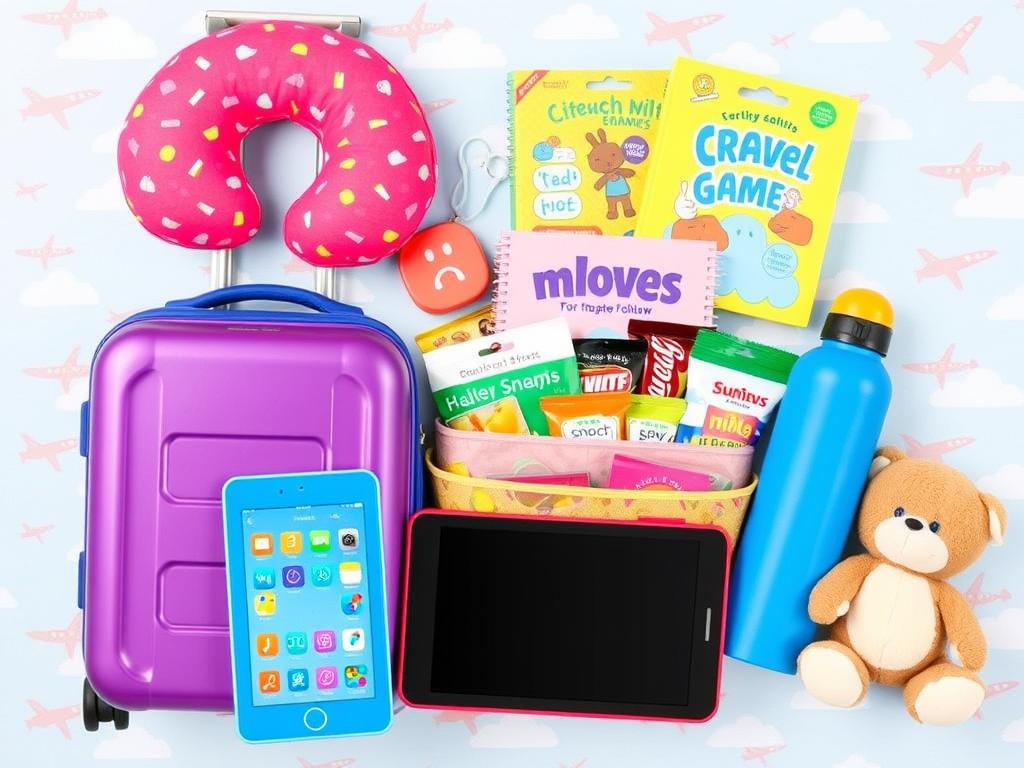When Sarah became a new mother, she found herself overwhelmed with the responsibilities that came with raising her child. One evening, after a particularly long day at work, she came home and sat down, ready to unwind. But instead, she noticed her 6-year-old daughter, Emily, quietly building a tower with blocks, looking up every so often with eyes that seemed to be searching for connection.
In that moment, Sarah recalled a piece of advice she had read about the Secrets of Building a Strong Parent-Child. Remembering the importance of quality time, she put her phone away and joined Emily on the floor. As they built together, they laughed, talked, and shared stories. That simple act not only strengthened their bond but also reminded Sarah that small, intentional moments can lead to significant emotional growth for both children and parents.
This experience highlighted the essence of nurturing strong relationships with children, which is vital for their emotional, social, and cognitive development. Understanding the Secrets of Building a Strong Parent-Child Relationship requires dedication to effective communication, mutual respect, and making time for family bonding. In the following sections, we will explore practical Parenting Tips that focus on trust building, emotional safety, and fostering resilience in children.
Key Takeaways
- Building strong bonds with children can decrease anxiety and depression in both parents and teens.
- A solid parent-child relationship fosters open communication and understanding.
- Establishing trust creates a sense of security that lasts a lifetime.
- Active listening techniques significantly enhance the bond between parents and children.
- Practicing empathy through active listening improves family dynamics and support.
- Intentional family interactions nurture emotional intelligence in children.
- Quality time spent together today lays the groundwork for lifelong relationships.
Understanding the Importance of a Strong Parent-Child Bond
Establishing a strong parent-child bond is essential for emotional health and long-term Child Development. When parents engage in warm, loving interactions, children feel secure and valued. These emotional connections form the foundation for improved self-esteem, communication skills, and overall happiness.
The Emotional Benefits of a Close Relationship
Positive relationships with parents create a safe environment for children to explore the world. Supportive interactions encourage children to express their thoughts and feelings openly. An effective approach involves listening without judgment, allowing for trust-building that enhances communication. Expressing love both verbally and through physical touch can significantly contribute to emotional well-being.
According to studies, 95% of parents believe this form of emotional involvement is crucial for strengthening the bond. The warmth and responsiveness from parents lead to healthy emotional and neurobiological development, creating a nurturing space for children to thrive.
Long-term Impacts on Child Development
The early years are critical for establishing trust and security. Children who feel supported are more likely to develop healthy relationships as they grow. Parents can foster long-term Child Development by spending quality time together, initiating family rituals, and maintaining clear and fair family rules.
Parenting Tips suggest that consistent and engaging interactions allow children to practice language skills and emotional expression. This nurturing approach helps children learn about boundaries and encourages their independence, leading to balanced, confident adults.

| Aspect | Impact on Children |
|---|---|
| Secure Attachments | Better academic performance and lower anxiety levels |
| Positive Interactions | Increased self-esteem and communication skills |
| Quality Time | Stronger emotional connections and understanding of shared experiences |
| Supportive Environment | Development of social skills and healthier adult relationships |
By prioritizing these elements, parents can cultivate an environment that significantly enhances their child’s emotional benefits and overall development.
Effective Communication Strategies
Establishing effective communication with children is vital for nurturing a strong relationship. By focusing on Active Listening, parents can create a safe space for their children to express themselves without fear of judgment. This approach not only promotes understanding but also validates their feelings and thoughts.
Active Listening Techniques
Active listening is a crucial skill that allows parents to connect deeply with their children. Techniques such as:
- Encouraging eye contact
- Reflecting back what the child says
- Using their name during conversations
These methods enhance engagement and foster a sense of importance in the child’s voice. When children feel heard, they are more likely to engage openly during conversations.
Encouraging Open Dialogue
Creating an environment where open dialogue is encouraged builds trust between parents and children. This can be achieved by exploring topics outside of personal issues. Casual car rides are excellent opportunities for children to share their thoughts, especially when the focus is on subjects other than themselves. Regularly dedicating time to conversations promotes emotional safety and supports Effective Communication.
Using Positive Reinforcement
Implementing positive reinforcement is key for nurturing positive behavior. Recognizing achievements, whether big or small, reinforces good actions and encourages children to repeat them. Examples include:
- Praise for completing homework
- Acknowledgment for sharing or helping at home
- Celebrating milestones, like learning a new skill
Such reinforcement techniques strengthen the parent-child relationship and contribute to the child’s confidence. Building on these strategies fosters a healthy family dynamic that enhances emotional bonds. For more insights on fostering listening skills, check out this guide on effective communication techniques.
Quality Time Matters
The essence of quality time lies not in the number of hours spent together but in the depth of engagement during those moments. Prioritizing this time strengthens trust, communication, and emotional security within the parent-child relationship. Children flourish when they feel seen, heard, and valued, making it crucial for parents to invest in meaningful activities together.

Fun Activities to Strengthen Your Bond
Engaging in fun activities can significantly enhance family relationships. Here are some enjoyable ideas that can foster connections:
- Family game nights promote teamwork and communication skills.
- Cooking or baking together not only creates shared memories but also enhances educational opportunities.
- Outdoor adventures improve physical health while encouraging meaningful conversations.
- Art and craft projects help with self-expression and shared pride.
- Reading together stimulates language development and sparks imagination.
- Designating a “No-Tech” day each week can improve quality in-person interactions remarkably.
- Doing community service as a family teaches empathy while creating positive shared experiences.
Creating Family Traditions
Building family traditions establishes a sense of belonging and continuity. These elaborate on essential moments, making them memorable and unique. One compelling tradition might include one-on-one outings tailored specifically to each child’s interests, highlighting their worth and importance within the family. Regular meals together serve as another effective method to strengthen bonds, allowing families to unwind and connect over shared experiences.
Balancing Time Between Work and Family
Striking a balance between work and family life can be demanding. Parents may consider using childcare services like Kidz Watch to carve out more quality time. Setting boundaries is essential, such as minimizing digital device use after dinner. These steps ensure that children benefit from healthy parent-child relationships, fostering confident and independent individuals who navigate life effectively.
Integrating these parenting tips into daily routines can elevate the significance of quality time, promoting lasting emotional connections.
Navigating Conflicts and Challenges
Conflict is a normal part of family life, shaping how parents and children interact. Understanding Healthy Conflict Resolution is key to fostering Family Bonding. Empathy and open communication play essential roles in addressing disputes effectively. Recognizing different Parenting Styles aids in navigating challenges and resolving conflicts harmoniously.
Tips for Healthy Conflict Resolution
To encourage healthy resolution practices, consider these strategies:
- Reconnection: About 80% of childhood conflicts stem from minor frustrations, resolved through reconnecting.
- Parental Guidance: Up to 90% of significant conflicts may need adult intervention, highlighting parental involvement’s necessity.
- Modeling Behavior: Parents influence how children navigate disputes, showcasing vital conflict resolution skills.
- Supportive Environment: Foster a nurturing atmosphere where children feel safe to express their emotions post-conflict.
Understanding Different Parenting Styles
Different Parenting Styles can create variations in conflict dynamics. Consider the following aspects:
| Parenting Style | Characteristics | Impact on Conflict |
|---|---|---|
| Authoritative | Encourages independence yet maintains expectations. | Promotes effective communication and conflict resolution skills. |
| Authoritarian | Focuses on obedience, often lacking emotional support. | May create power struggles and heightened resistance during conflicts. |
| Permissive | Allows considerable freedom with little discipline. | Can lead to challenges in establishing boundaries and expectations. |
| Neglectful | Characterized by lack of responsiveness and connection. | Often results in unresolved conflicts and emotional detachment. |

As families encounter conflicts, recognizing the unique traits of different Parenting Styles allows parents to adjust their approach, fostering a better environment for resolving disputes. Encouraging open dialogues can significantly aid in repairing relationships and enhancing Family Bonding, reassuring children that mistakes can be acknowledged and resolved in a positive manner.
Building Trust and Emotional Safety
Creating a strong foundation of trust and emotional safety is vital for nurturing a healthy parent-child relationship. One of the most effective ways to achieve this is by expressing unconditional love through both words and actions. Simple gestures like hugs, kisses, and engaging conversations allow children to feel valued, secure, and more willing to explore their emotions without fear of judgment. Regularly spending quality time with your child enhances this emotional bond, making them feel cherished and supported.
Ways to Express Unconditional Love
Building trust in a relationship begins with dependable emotional support. Responding promptly to a child’s needs demonstrates reliability and reassures them that they can count on their parents. Additionally, establishing family traditions, such as weekly game nights or bedtime stories, can further reinforce this sense of stability and provide children with happy memories of togetherness. These actions contribute significantly to their overall emotional safety and wellbeing.
Creating a Safe Space for Vulnerability
To foster an environment where children feel comfortable expressing themselves, parents must create a safe space for dialogue. This involves active listening and showing empathy towards their feelings. Encouraging open communication about thoughts and emotions not only helps children articulate their feelings but also strengthens the bond between them and their parents. In these moments, trust building becomes essential as parents provide reassurance and support during conversations of vulnerability.
Encouraging Independence While Staying Connected
As children grow, nurturing their independence is equally important. Parents should encourage autonomy while providing a sense of connection. Engaging in shared activities, such as cooking or exploring nature, allows children to build self-confidence and resilience without losing the emotional support they need. Balancing encouragement of independence with consistent love and understanding strengthens the parent-child bond and prepares children to face real-world challenges with assurance. To delve deeper into essential skills that help with this development, check out this comprehensive resource on life skills every child needs.











